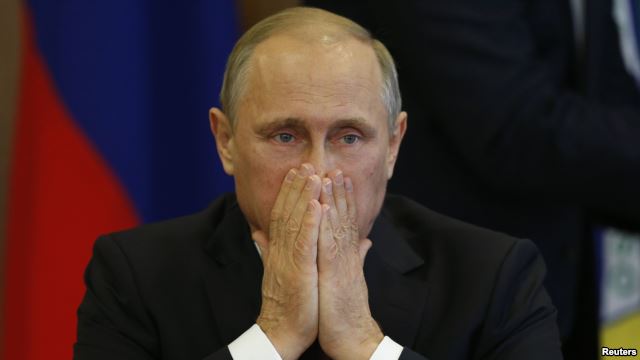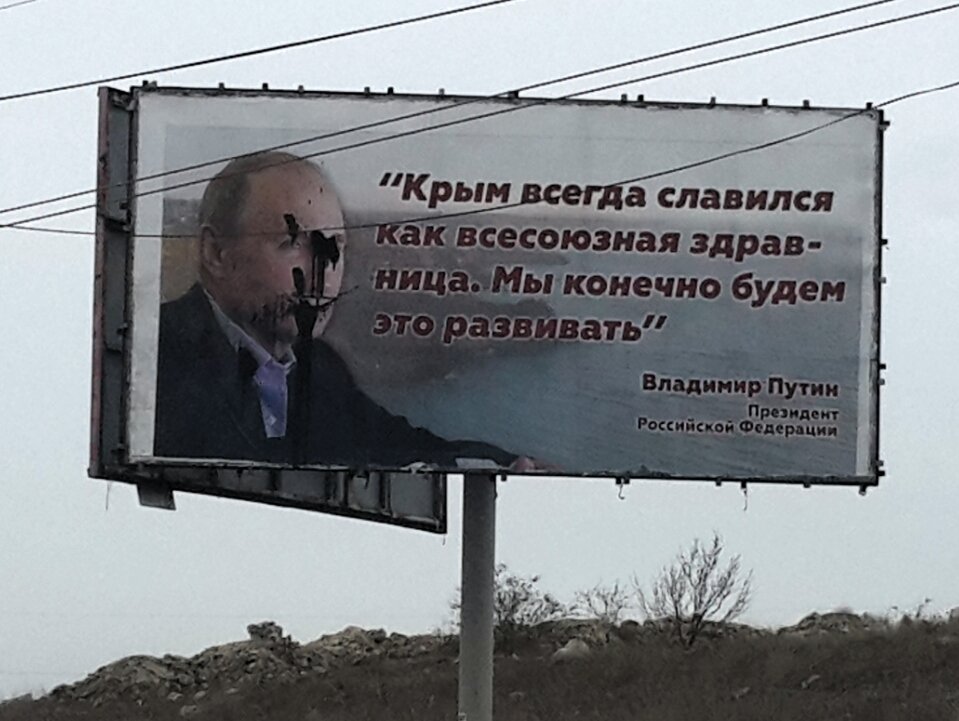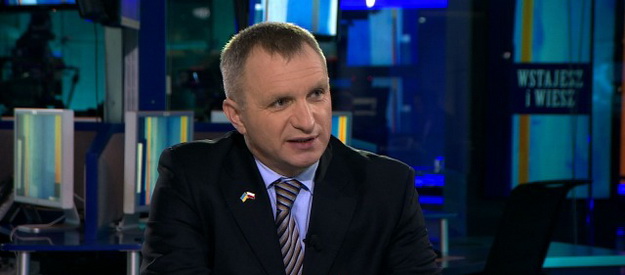Liudmyla Vannek
Yet another quote by Russian President Vladimir Putin evoked a storm of criticism in the media. This time he said he was ready to “take Kyiv within two weeks.” And though Putin’s assistant Yury Ushakov already stated that he words of the Russian leader, cited by head of the EU Commission Jose Manuel Barrosso, were taken out of context and had a different meaning, they still sounded in the phone call between Barrosso and Putin. Normally, Vladimir Putin is conscious of his word choice in talks with international leaders. Even if the context was different, and we don’t know for sure what it was, why is the Russian leader using such a formulation these very days? To spread panic in Ukraine, among its government, or as a provocation? What is Putin trying to achieve when using such a formulation? Radio Liberty asks Russian political expert Andrey Okara.
It should be noted that Putin did not make such a claim. It was not a statement but something he said in conversation with Barrosso. Therefore it is a very specific method, a very specific genre of delivering the message to broad audiences. Earlier Putin also made such a so-called mistake at the NATO summit in Bucharest in 2008, when he said once more that Ukraine is some sort of “under-state.” On one hand, they are historical Russian lands, on the other, the Western side, they are Western, central European lands, and therefore Ukraine is a historical mistake of sorts.
This genre is quite solvent, because on one hand one can make a point to the broader public, on the other it is not an official statement, therefore it makes no sense to complain against Putin in any way, because it can be said that he did not claim this, that he was not heard correctly, that he was misunderstood. Therefore such politically incorrect, non-diplomatic statements, they are retold citing not the primary source, but a secondary, tertiary one. Therefore, on one hand, Putin said what he wanted to say, on the other – it is very difficult to complain, make any rational plaints against him.
But this conversation occurred not with some sort of friend of his, or some associate. It was the head of the EU Commisson Jose Manuel Barrosso, so it looks like he can be accused to lying if he retold Putin’s statement incorrectly?
The general context, the intonations of the interlocutor, the audience play a significant part in such statements. And therefore, when this is said citing a secondary or tertiary source, it can always be said that it was misunderstood, that he means something completely different, that it was some kind of irony or a joke, black humor. This is the essence of such statements, that nobody can be accused of anything. Barrosso cannot be accused of lying, Putin cannot be accused of some politically incorrect statement, and we just took note of these words, and maybe we should draw certain conclusions from them.
And if we draw conclusions during the week when on Friday the EU is supposed to approve the new package of sanctions against Russia, when the NATO summit is starting in Wales, where Putin was not invited… Can such ‘accidental’ words or their interpretations be seen as Putin losing his nerve, making such statements? His assistant Ushkov said that these words were taken out of context. And he said that he was able to take Kyiv within 2 weeks; it’s not a simple phrase, is it?
Of course, such words, had Putin wanted to say them publicly out loud, would have been said by him, but then he would have been accused of being a terrorist, an aggressor, of being Hitler and bin Laden in one body. As such, he said it, on one hand. But not only did he say it to you and I, the laymen, but he also said it to European politicians; it is his opinion on European sanctions against Russia. And such statement as the one about Kyiv, just like statements on nuclear weaponry… a person who says such things directly and out loud can be considered an enemy against peace in the entire world. And such words bring about significant conclusions.
Mr. Okara, the Kremlin recently has been denying more and more of Putin’s statements. On Sunday the Russian President’s press secretary Dmitry Peskov claimed that Putin was misunderstood in the interpretation of a different topic which Vladimir Putin expressed live on Channel One, if you may recall. I am talking about the ultimatums given by so-called DNR and LNR, which are considered terrorist organizations in Ukraine: the legalization of the Russian army as the armed forces of so-called Novorossiya, and the right of the latter to its own foreign economic policy within Ukraine, by developing ties with the Customs Union, so things that Ukraine cannot agree to in any case. And now Putin’s press secretary is also saying that Putin was misunderstood. How can such things be misunderstood?
Once again, we see the same move, when something is said somewhere and later denied, this is not the first time it was used, and now it is one of the Kremlin’s main information policy maneuvers. When some a priori politically incorrect public position emerges first, and later it is negated by assistants, press secretaries, saying the words were misunderstood. However, to my mind, these messages should be understood the way we already do, so in the political incorrect and non-diplomatic format, and the denials are simply attempts to get rid of the complaints that emerge, as these messages are sometimes outside of the limits of good and evil.
Source: Radio Liberty
Translated by Mariya Shcherbinina








